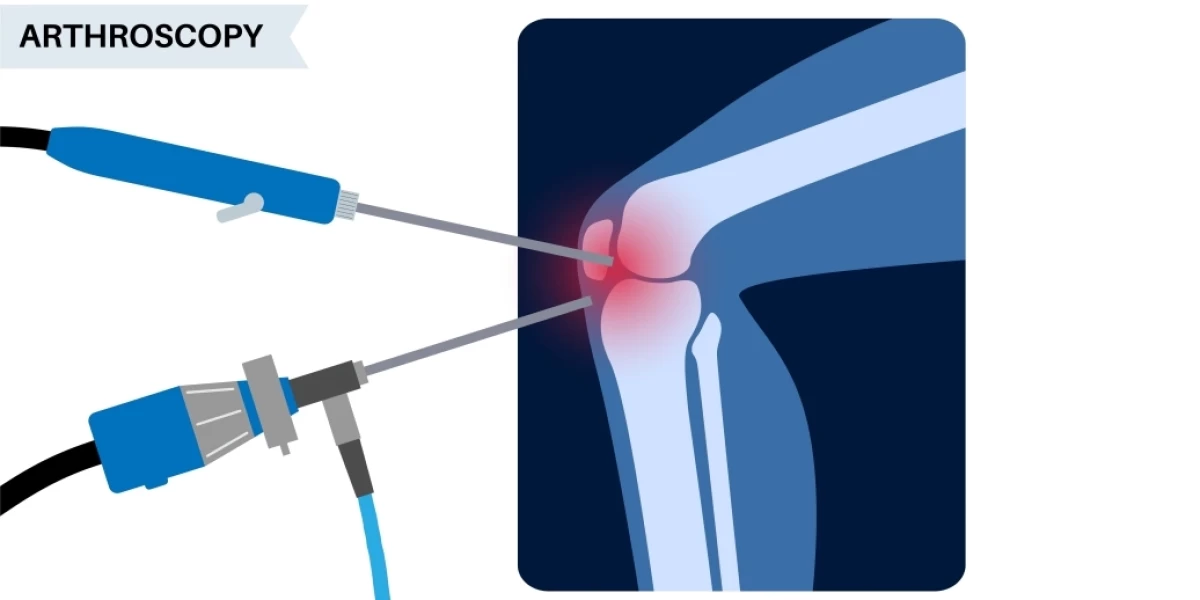Introduction
Muscle tension and discomfort are all too common in our fast-paced daily lives. Whether it's the result of long hours hunched over a computer, intense physical activity, or the inevitable stress that comes with modern living, muscle pain can significantly impact one's quality of life. Addressing this widespread issue requires effective solutions that provide quick and reliable relief. Over-the-counter (OTC) muscle relaxers have become a popular choice for many seeking to alleviate muscle pain without the need for a prescription. These readily available options offer the convenience of self-care and immediate access to pain relief, making them an invaluable resource for managing muscle tension. In this article, we will delve into the top OTC muscle relaxers, exploring their benefits and how they can help you find quick and effective relief from muscle discomfort.
Understanding Muscle Relaxers
Muscle relaxers are medications or supplements designed to reduce muscle spasms, tension, and pain. They work by acting on the central nervous system or directly on the muscles to alleviate discomfort and improve mobility. Prescription muscle relaxers, such as cyclobenzaprine and baclofen, are typically more potent and are used for severe muscle spasms and chronic pain conditions. However, these medications often come with a risk of side effects and require careful medical supervision. On the other hand, over-the-counter muscle relaxers provide a safer and more accessible alternative for those seeking immediate relief from muscle tension. OTC options generally include nonsteroidal anti-inflammatory drugs (NSAIDs) like ibuprofen and naproxen, which help reduce inflammation and pain, as well as natural supplements such as magnesium, valerian root, and turmeric, which promote muscle relaxation and reduce spasms. The primary benefit of OTC muscle relaxers is their accessibility and ease of use. They allow individuals to quickly address muscle pain without the need for a doctor's visit, providing a convenient and effective solution for managing everyday muscle discomfort. Whether you're dealing with post-workout soreness, tension from prolonged sitting, or stress-related muscle pain, OTC muscle relaxers offer a valuable option for achieving quick and reliable relief.

Common Causes of Muscle Tension
1. Stress and Anxiety
Stress and anxiety are major contributors to muscle tension. When stressed, the body releases hormones like cortisol, which prepares muscles to respond to a perceived threat. While useful in short-term situations, chronic stress can lead to persistent muscle tension.
2. Poor Posture
In today’s digital world, many spend long hours sitting, often with poor posture. Slumping at a desk or craning the neck toward a screen strains muscles, particularly in the back and neck, leading to stiffness and discomfort over time.
3. Physical Activity and Overuse
Exercise and physical exertion can lead to muscle tension, especially when muscles are overused without proper rest or recovery. People who engage in repetitive motions or strenuous activity are more likely to experience this.
4. Sedentary Lifestyle
Ironically, while overuse can strain muscles, so can inactivity. A sedentary lifestyle, often involving prolonged sitting, can weaken muscles, particularly in the core and back, making them more prone to tension.
5. Dehydration and Poor Nutrition
Muscles rely on proper hydration and a balanced diet for optimal function. Without adequate water, muscles can become tight and cramp more easily. Essential nutrients like magnesium and potassium also play a crucial role in muscle relaxation.
Why Relieving Muscle Tension is Important
Unrelieved muscle tension can contribute to chronic pain, impact mental health, and interfere with physical activity. In severe cases, it can even limit mobility, making daily tasks difficult. Effective muscle relaxation allows for better physical and mental well-being.
Types of Muscle Relaxers: Prescription vs. OTC
Prescription Muscle Relaxers
Prescription muscle relaxers are typically used for more severe or chronic conditions. They are generally stronger and require a doctor’s approval due to potential side effects.
OTC Muscle Relaxers
OTC muscle relaxers are accessible options that can be effective for mild to moderate muscle tension. They are widely available and typically come in tablet, gel, or patch form, making them convenient for many users.
Criteria for Choosing an OTC Muscle Relaxer
Choosing the right OTC muscle relaxer depends on multiple factors. Here are some important aspects to remember:
1. Effectiveness
Different OTC muscle relaxers target various symptoms, so it’s crucial to pick one that aligns with your specific needs. Some may work better for general muscle soreness, while others target inflammation or spasms.
2. Safety Considerations
Always read the label and consult with a healthcare professional if you’re unsure about a product’s safety, especially if you have existing health conditions. Some OTC options may interact with medications or be unsuitable for certain individuals.
3. Side Effects and Interactions
While OTC muscle relaxers generally have fewer side effects than prescription options, they may still cause drowsiness, digestive upset, or skin irritation in topical forms. Always check for potential interactions with other medications you may be taking.
4. Personal Health Conditions
Certain health conditions, such as heart disease or liver problems, may influence your choice of muscle relaxer. Ensure that the product you choose is compatible with your overall health profile.
Top Over-the-Counter Muscle Relaxers
1. Acetaminophen (Tylenol)
Acetaminophen is a popular OTC option for pain relief and works by blocking pain signals in the brain. It doesn’t have anti-inflammatory properties, making it ideal for those who want pain relief without the risk of stomach irritation. Recommended dosages are usually 500-1000 mg every 4-6 hours, but overuse can lead to liver damage.
2. Ibuprofen (Advil, Motrin)
Ibuprofen is an anti-inflammatory drug, helping not only with pain relief but also reducing inflammation. It’s commonly recommended for muscle pain, with doses ranging from 200-400 mg every 4-6 hours. Overuse, however, can result in stomach issues, so it’s essential to stick to recommended doses.
3. Naproxen (Aleve)
Naproxen is a longer-lasting anti-inflammatory option, with effects lasting up to 12 hours, making it convenient for sustained relief. The recommended dosage is usually 220 mg every 8-12 hours. It is highly effective for muscle and joint pain but may also have gastrointestinal side effects with extended use.
4. Aspirin
Aspirin is known for its pain-relieving and anti-inflammatory properties and is sometimes used for muscle pain. While effective, it is not recommended for individuals with certain health issues, such as stomach ulcers. Standard dosing ranges from 325-650 mg every 4-6 hours.
5. Topical Options (e.g., Menthol Creams)
Topical options like menthol creams provide localized relief by numbing the affected area. Popular options include products with menthol, camphor, or capsaicin. These are applied directly to the skin and can provide quick, temporary relief from minor aches.
Natural Alternatives to OTC Muscle Relaxers
Natural remedies can provide an alternative or complement to OTC options. Many people prefer natural treatments due to fewer side effects and the ability to target pain and tension with gentle, plant-based solutions.
Herbal Supplements as Muscle Relaxers
1. Valerian Root
Valerian root is often used for relaxation and sleep, but it can also relieve muscle tension. Available as teas or supplements, it provides a mild sedative effect, making it helpful for those experiencing muscle tension from stress.
2. Chamomile
Chamomile has natural anti-inflammatory properties and is well-known for its calming effects. Chamomile tea or extracts can help soothe the nervous system and ease muscle spasms.
3. Passionflower
Passionflower is another herbal option known for its calming properties. Often used in supplement form, it has been shown to reduce muscle spasms and relieve anxiety, which can contribute to muscle tension.
Essential Oils for Muscle Relaxation
1. Lavender Oil
Lavender oil has a calming aroma and can help relax muscles when applied topically or used in aromatherapy. Massaging a diluted lavender oil onto sore muscles can provide soothing relief.
2. Peppermint Oil
Peppermint oil contains menthol, which has a cooling effect and helps reduce pain. It’s commonly used for headaches and muscle pain relief. Applying diluted peppermint oil to sore muscles can provide a quick, cooling sensation.
3. Eucalyptus Oil
Eucalyptus oil has anti-inflammatory properties and is commonly used in pain relief creams. It can be massaged into muscles or used in a warm bath for muscle relaxation.
Physical Therapies and Techniques
1. Heat Therapy
Applying heat to sore muscles improves blood circulation, which can help alleviate tension. Heat pads, warm baths, or hot towels are effective methods to relieve pain.
2. Cold Therapy
Cold therapy reduces inflammation and numbs sore areas, making it helpful for acute pain relief. Ice packs can be applied in short intervals for immediate relief.
3. Stretching Exercises
Gentle stretching helps release tension in muscles and can prevent stiffness. Focusing on flexibility exercises can enhance muscle health and minimize recurring pain.
Lifestyle Tips for Preventing Muscle Tension
Ergonomic adjustments in your workspace, staying hydrated, and incorporating regular breaks during prolonged sitting can prevent muscle tension from developing. Good posture and daily exercise also go a long way in maintaining muscle health.
Potential Side Effects and Precautions
Possible Side Effects
While OTC muscle relaxers are generally safe, some people may experience side effects, including:
- Drowsiness or Fatigue: A common side effect, especially with medications that contain antihistamines.
- Digestive Issues: Nausea, constipation, or upset stomach can occur, particularly with nonsteroidal anti-inflammatory drugs (NSAIDs).
- Headache: Some people may experience mild headaches.
- Allergic Reactions: Rash, itching, or more severe reactions are rare but possible.
Precautions
It’s important to use OTC muscle relaxers cautiously, especially if you are taking other medications. Always consult a doctor if:
- You have pre-existing health conditions (like liver or kidney disease).
- You experience unusual side effects.
- Your pain persists despite taking the relaxer.
Note: Following dosage instructions is crucial. Overuse or misuse of these medications can result in serious health complications, such as liver damage with acetaminophen.
Tips for Maximizing Relief
Combining Relaxers with Lifestyle Habits
To maximize the effectiveness of OTC muscle relaxers, consider adopting complementary habits:
- Stretching: Gentle stretching can help alleviate tension and increase blood flow.
- Hydration: Dehydrated muscles are more prone to cramps and spasms, so drink plenty of water.
- Rest: Giving your muscles time to recover can speed up the healing process.
Adopting a Holistic Approach to Muscle Health
For lasting relief, combine OTC muscle relaxers with a holistic approach. Regular exercise, proper posture, and balanced nutrition are all key to keeping muscles strong and healthy.
Personal Experiences and Testimonials
When it comes to finding effective solutions for muscle pain, personal experiences and testimonials often serve as powerful endorsements. Many individuals have found relief through over-the-counter (OTC) muscle relaxers, turning to these accessible options for quick and effective relief. For instance, John, a marathon runner, frequently experiences muscle cramps after intense training sessions. He swears by magnesium supplements, noting that they significantly reduce his muscle tension and allow for faster recovery times. Jane, a busy office worker, often deals with neck and shoulder stiffness from long hours at her desk. She shares how applying peppermint oil to the affected areas provides immediate cooling relief and eases her muscle tension, allowing her to focus better on her work. Mark, who suffers from chronic back pain, has found that taking ibuprofen helps manage his discomfort, particularly during flare-ups. These real-life testimonials underscore the effectiveness of OTC muscle relaxers and highlight their role in enhancing the quality of life for individuals dealing with muscle pain. By sharing these stories, we not only build trust and credibility for these products but also provide hope and inspiration for those seeking similar relief.
Conclusion
In conclusion, over-the-counter muscle relaxers offer a valuable solution for quick and effective relief from muscle tension and discomfort. Throughout this blog post, we have explored the prevalence of muscle pain in daily life and the importance of finding accessible and reliable remedies. We have delved into the mechanisms of muscle relaxers, differentiating between prescription and OTC options, and highlighted the benefits of readily available solutions. Personal testimonials have further demonstrated the impact of these products on individuals' lives, reinforcing their credibility and effectiveness. As you consider your options for managing muscle pain, it is essential to choose OTC muscle relaxers that align with your specific needs and consult with healthcare professionals if necessary. By prioritizing your muscle health and exploring safe and natural remedies, you can achieve a healthier, more comfortable lifestyle. Remember, while OTC muscle relaxers provide immediate relief, adopting a holistic approach to muscle care, including proper nutrition, regular exercise, and stress management, can lead to long-term well-being. Embrace these solutions and take proactive steps towards a life free from muscle pain and discomfort.
Frequently Asked Questions(FAQs)
1.What is the fastest muscle relaxant?
- Diazepam (Valium) is often considered one of the fastest-acting muscle relaxants prescribed by doctors.
2. What is the strongest over-the-counter muscle relaxer?
- Ibuprofen and naproxen are among the strongest OTC options, especially for inflammation and pain relief.
3. What is the most rapidly acting muscle relaxant?
- Similar to the fastest muscle relaxant, Diazepam (Valium) is quick-acting and often used for acute muscle spasms.
4. Which is the best muscle relaxant in India?
- Thiocholchicoside and Chlorzoxazone are commonly prescribed muscle relaxants in India.
5. Is Zerodol a muscle relaxant?
- Zerodol is not a muscle relaxant; it is an anti-inflammatory medication used to treat pain and inflammation.
6. What muscle relaxer do doctors prescribe?
- Doctors often prescribe Cyclobenzaprine (Flexeril), Diazepam (Valium), or Methocarbamol (Robaxin) for muscle spasms.
7. What is the best pain reliever for muscle pain?
- Ibuprofen and naproxen are highly effective pain relievers for muscle pain, reducing inflammation as well.
8. What is a true muscle relaxer?
- A true muscle relaxer specifically targets muscle spasms and includes medications like Cyclobenzaprine, Methocarbamol, and Carisoprodol.
9. Which tablet is best for leg muscle pain?
- For leg muscle pain, Ibuprofen or Cyclobenzaprine are often recommended.
10. Are OTC muscle relaxers safe for daily use?
- While generally safe for short-term use, prolonged daily use of OTC muscle relaxers should be done under medical supervision to avoid potential side effects.
11. Can OTC muscle relaxers cause drowsiness?
- Yes, OTC muscle relaxers like ibuprofen or naproxen can cause drowsiness in some individuals.
12. How do I know if a muscle relaxer is working?
- Relief from muscle spasms, reduced pain, and improved mobility typically indicate that a muscle relaxer is effective.
13. Can I drive after taking an OTC muscle relaxer?
- It’s advisable to avoid driving until you know how the muscle relaxer affects you, as some can cause drowsiness and impair coordination.
14. Are muscle relaxers addictive?
- Some prescription muscle relaxers, such as Carisoprodol (Soma) and Diazepam (Valium), have the potential for addiction if not used as directed.
*Image credits- freepik*
Important Notice:
The information provided on “health life ai” is intended for informational purposes only. While we have made efforts to ensure the accuracy and authenticity of the information presented, we cannot guarantee its absolute correctness or completeness. Before applying any of the strategies or tips, please consult a professional medical adviser.













